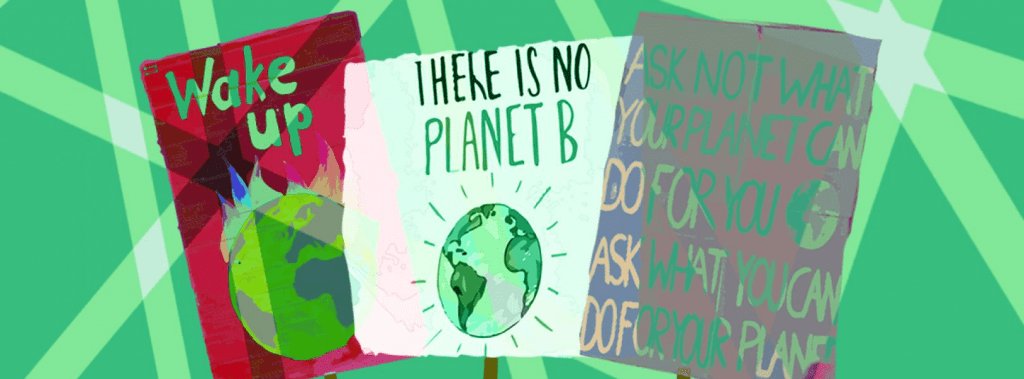Climate change is a global crisis, not a political issue
3 min read
Climate change needs to be taken beyond political policy before it's too late (Ceci Freed | Media Matters)
By CALEB PICARD
Staff Writer
The polarity that is becoming commonplace within American politics and media is allowing for climate change to be overlooked as leftist fake news. Climate change has become one of the most prevalent issues within the past decade, yet America continues to stay in denial of this world’s continuous and increasing weather abnormalities. The United States has the highest rate of climate change denial among first world countries.
Climate change can no longer be perceived as a political issue.
97 percent of all climate scientists agree that not only is climate change happening, but it is caused by humanity. One of UMW’s resident climate scientists and environmental science professors, Pamela Grothe, noted that it is an indisputable fact, that we can and do record the carbon emission within our atmosphere that has been scientifically linked to fossil fuels.
“A big part of it is because of Big Oil and their well-funded and well-organized fossil fuel lobbyists. They have been particularly successful in influencing government policy and distorting the reality about climate change,” said Grothe.
Oil, natural gas and coal have all been scientifically linked to this catastrophe. Due to this, we as a nation are being shown directly the power that industry has over politics. These are big businesses, which are directly contributing to climate change, becoming political through lobbying and advocating.
Emile Lester is a professor of political science at Mary Washington. Lester explained the distinction of our government as a presidential system, instead of the more common parliamentary system. This system of leadership, in addition to the weak campaign finance laws in place, allows for a much easier insertion of extreme wealth into politics. This insertion of wealth into politics allows for the furthering of big business’ agendas and creates a system that puts corporations before people.
John Tippett, another UMW environmental science professor and climate scientist, shared a slightly different view about the cause of climate change’s presence in the political arena. Tippett expressed his view that climate change has become helplessly attached to the culture wars that America is undergoing. These cultural divisions, that have become undeniable within previous years, are causing a greater force of partisanship within the parties. Blind partisanship has become a prevalent issue within modern America with both parties out to get one another.
Tippett brings up the issue of cognitive dissonance being an explanation for climate change denial. “If I am being told that the only solution to climate change goes against my beliefs about big government, then it is very easy for me to discount data rather than being forced to make a hard choice about my own beliefs.”
Within modern society both sides of the political spectrum are unwilling to listen to the other which is causing some worldwide issues to be ignored. For the past 30 years, we have known about climate change, and now we have reached a point where every year hurricanes, wildfires, flooding and more dangerous phenomena are occurring throughout the world.
Climate change is a global crisis that needs to be addressed as more than just a political issue. Only then can I foresee a possibility for change in policy to address climate change as the catastrophe that it has evolved into.











